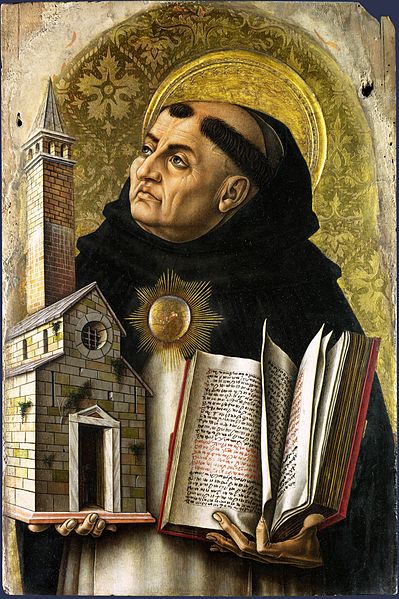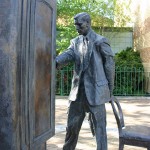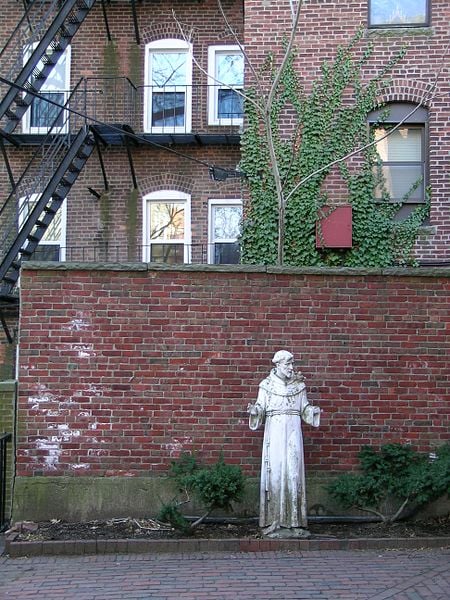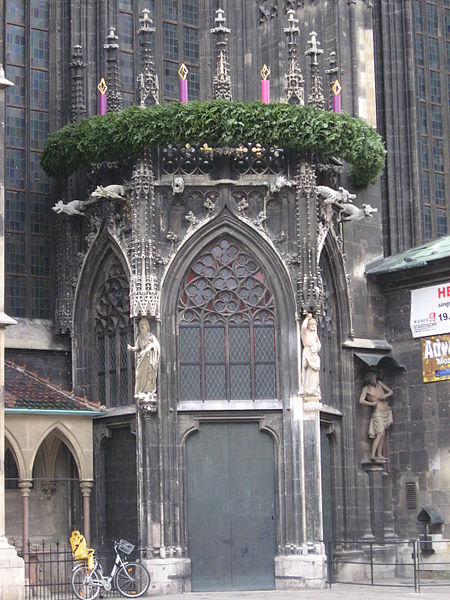David Russell Mosley

Carlo Crivelli (circa 1435–circa 1495)
Saint Thomas Aquinas (PD-1923)
Ordinary Time
Feast of St. Ethelreda
The Edge of Elfland
Hudson, New Hampshire
Dear Readers,
A few days ago the University of Nottingham put out another video in its A-Z of Theology series entitled K is for Kitchen. In the video one of my former PhD supervisors, Dr. Tom O’Loughlin talks about how there are often two ways of looking at religion. There is the religion of the study––its theology, philosophy, laws, etc.––and there is the religion of the kitchen.
Now O’Loughlin goes on to discuss things like dietary laws, with a passing mention of feasts, but the video got me thinking about a project I’ve been doing some light work on recently. Specifically, I’ve been thinking about what one might call folk liturgy or rustic liturgy or even hillbilly liturgy.
Flannery O’Connor once wrote in a letter that she feared many people believed her to be a hillbilly nihilist when she’d prefer they think of her as a hillbilly thomist. Since then the term has taken moderate flight amongst academics and others. It has become, in many ways, a catch all for those who seek to attain the heights without leaving behind the lows. Noted Aquinas scholar Frederick Christian Bauerschmidt who has aligned himself on more than one occasion with hillbilly thomism. I must admit to rather loving the term and am currently in the process of searching for uses of the word rusticus (which could be translated as rustic, hillbilly, and even country bumpkin) in the works of Thomas Aquinas. In truth, the instances I’ve found so far certainly don’t paint the hillbilly in very positive light (at one point he’s digging up a grave). But there is one passage I find intriguing.
In discussing the nature of miracles, Aquinas notes how sometimes an event may appear wonderful to some, particularly those who do not know its source. He writes:
Wherefore a thing is wonderful to one man, and not at all to others: as an eclipse is to a hillbilly, but not to an astronomer. Now a miracle is so called as being full of wonder; as having a cause absolutely hidden from all: and this cause is God. Wherefore those things which God does outside those causes which we know, are called miracles (ST Ia. 105, 7).
Aquinas paints us a picture of an eclipse as it appears to the hillbilly and to the astronomer. The hillbilly is filled with wonder at the eclipse because the cause of the eclipse (the moon passing in front of the sun) is hidden from him, but not to the astronomer. The cause of the hillbilly’s wonder is ignorance at how the even takes place. However, when it comes to miracles, none of us is in the position of the astronomer. None of us is privy to how God brings about a miracle since its very definition is God doing something outside of the causes about which we know something. So in a miracle we are all in the place of the hillbilly. One could take this a step further then and note that in light of the creation, an event about which we have much to say, but about which none of us know how it was caused, we are all made, indefinitely, hillbillies.
Now, to return to the kitchen: I’m currently working on, or more specifically, I have submitted a paper proposal on the use of wine and bread in the Eucharist. Aquinas sees them as the proper matter (materia conveniens) because they are the food with which men are commonly fed (ST IIIa. 74, 1). While Aquinas does not use the term rusticus here, but rather communius, I think there is a connection. Bread and wine and are, or at least were, the common fare for everyone from the lowest hillbilly to the highest nobleman. Now the argument I hope to put forth, should my proposal be accepted for this conference, is that not unlike, though not completely like either, the effect the Incarnation has an all humanity, so too does the Eucharist have an effect on the food we eat. Every little feast we have, every dinner, participates in the Eucharist. This means the very rhythms of our lives are, or ought to be, bound up in the greater liturgies (of the day, the week, and the year). The rhythms of rustic life, of home life, participate in the heart of the liturgy: the encounter with Christ in the Eucharist. Our lives, when rightly attuned, therefore can become a kind of hillbilly liturgy wherein our waking up and lying down, our getting dressed, our work, and our meals form a kind of folk liturgy, a popular piety.
So, I believe Dr. O’Loughlin is quite right; there is a religion of the kitchen. For the dinner table is, in so many ways, the altar, the table of the Lord’s Supper in our homes.
Sincerely,
David
P.S. Also, check out this video of two Dominican friars who have (or at least had) a band called Hillbilly Thomists:
















